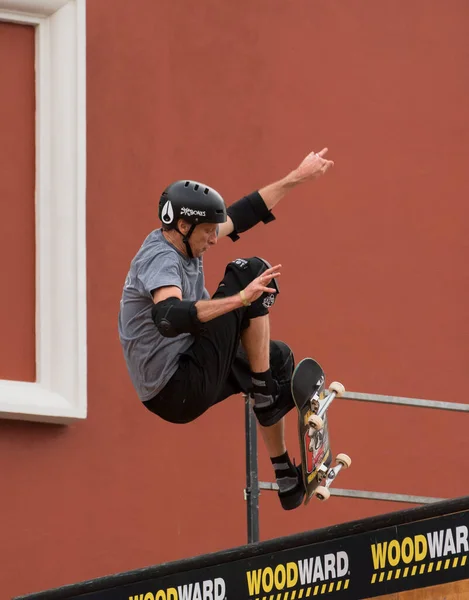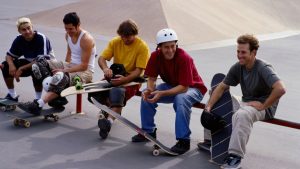Is skateboarding genuinely effective for enhancing our focus? If so, how does skateboarding help in enhancing focus for individuals including adults and children? Others may think that this one is not true. They think that there are some other ways to enhance our concentration without doing it outdoors.

For all of us, there are times when our focus wavers and concentrating seems impossible. It’s a frustrating experience. We’re here to offer an unconventional solution that might work for you. Yes, you read that right! Skateboarding can be an effective way to improve your concentration. Riding your skateboards requires immense mental concentration and physical coordination—a perfect recipe to enhance brain function. Not only that, but skateboards are well known for their ability to improve balance and agility, enhance your skating skills, and make the learning process pretty easy over time.
In this article, we will delve into the link between skateboarding and increased attention, explore additional benefits of skateboarding beyond concentration advancement, discuss ways to incorporate it into your routine, tackle common challenges beginners may face, and share strategies for maintaining concentration while skating.
So grab your skateboard (or consider investing in one) because we’re about to embark on a fascinating and comfortable journey where exercise meets mindfulness, with some epic tricks thrown in for good measure! Whether you’re a seasoned rider or just starting, the goal is to make you feel comfortable and enjoy the exhilarating blend of physical activity and mental concentration.
Key Takeaways
Skateboarding goes beyond being a thrilling sport; it can significantly help in improving engagement and cognitive function. The sport’s demand for mental concentration, quick decision-making, and physical coordination engages the brain, enhancing attention and memory. Real-life examples, such as the legendary skateboarder Tony Hawk, demonstrate the positive impact it has on attention.
Apart from attention benefits, it offers a range of physical and mental health advantages, making it an ideal activity to incorporate into your routine. To start, get the right equipment, master the basics, find safe spots to practice, set achievable goals, and ride your skateboard consistently.
Overcoming common challenges in skateboarding requires patience, determination, and a positive mindset. Dedication lets you maintain concentration while enjoying the excitement of this exhilarating sport.
So, embrace this skateboarding sport as a physical activity that not only enhances cardiovascular health but also serves as an effective stress relief and creative expression. It offers a unique blend of strength and flexibility, making it an enjoyable physical exercise. As you work on performing tricks and perfecting your grip tape skills, you’ll improve mental clarity and experience the incredible connection between skateboarding and mental well-being.
The Basics
Understanding the basics of riding your skateboards is essential for a safe and enjoyable experience on the board. It begins with familiarizing yourself with the necessary equipment, including the skateboard, trucks, wheels, bearings, and hardware.
Additionally, practicing safety is crucial, which involves wearing protective gear such as helmets, knee pads, and elbow pads to protect against potential injuries.

Having a spotter who can provide support and guidance while you practice can also be beneficial, especially for beginners aiming to improve their skills.
Mastering these fundamentals will pave the way for a skateboarding journey.
Linking Skateboarding And Concentrating
Let’s delve into the fascinating link between skateboarding and concentration, shall we?
There’s some intriguing science behind this link that explains how mastering the skateboard can significantly sharpen your concentration, a point worth exploring for anyone interested in personal improvement.
We’ll also share some real-life examples illustrating how this thrilling sport has enhanced many individuals’ engagement abilities.
The Science Behind Skateboarding
The link between skateboarding and attention is supported by scientific findings that show how the skateboarding can enhance concentration and attention. When riding your skateboards, individuals must stay fully present, react quickly to obstacles, and make split-second decisions, which engages their cognitive processes and trains their brains to concentrate effectively.
Skateboarding requires physical and mental skills, including balance, coordination, and spatial awareness, all playing a role in enhancing attention. As riders practice and master a new trick, their brains improve new neural connections and pathways, enhancing cognitive functions like memory, problem-solving, and attention.
Real-Life Examples
Skateboarding has been shown to have positive effects on attention in real-life scenarios. Many skaters report feeling more focused and in the zone while riding, leading to a heightened sense of flow and optimal performance.
For example, professional skateboarders often demonstrate remarkable attention during competitions, enabling them to execute complex maneuvers flawlessly. In amateur riders, regular practice and dedication to mastering many tricks can also enhance awareness and mental clarity.
In addition to the physical and mental benefits, skateboarding offers a unique form of mindfulness, allowing individuals to immerse themselves in the activity and temporarily disconnect from distractions and stressors. This meditative aspect of riding your skateboards further supports the link between skateboarding and engagement. It’s no wonder that many people find skateboarding to be incredibly addictive, as it provides a powerful and therapeutic escape from the challenges of everyday life.
The legendary professional skateboarder Tony Hawk is an excellent real-life example of how skateboarding can help in enhancing engagement. Throughout his illustrious career, Tony Hawk demonstrated unparalleled concentration and mental acuity during competitions and while performing groundbreaking tricks. For those seeking tips for learning from the best, Hawk’s journey serves as an inspiring guide to mastering the art of skateboarding.

As one of the most influential figures in skateboarding history, Tony Hawk’s ability to stay focused and perform under immense pressure has earned him numerous accolades and records. He famously became the first skateboarder to land a “900” (a 900-degree aerial spin) during the 1999 X Games, which required exceptional attention and determination.
Tony Hawk’s dedication to mastering his craft and pushing the boundaries showcases how skateboarding can positively impact attention and mental clarity. As an ambassador for skateboarding, Tony Hawk has inspired countless individuals to pursue skateboarding, encouraging them to improve their concentration and cognitive skills through the art of skateboarding. His influence extends beyond the skateboarding community, as he inspires people of all ages to embrace challenges and strive for excellence in their endeavors.
Enhancing Your Focus
Skateboarding teaches more than just focus; it’s a multifaceted activity that offers numerous advantages. Beyond enhancing your concentration, speeding your four wheels has many other benefits, a point that underscores its appeal and makes it worth trying.
It can be a great family activity that brings you closer together, allowing you to have fun while getting some exercise, learning new tricks, and fostering a social link. Here at FamilyHype, we believe that it is more than just a hobby – it’s a way to enjoy life, build relationships, and promote positive change in the community through the power of social link.
Regarding physical fitness, skateboarding offers an excellent way to keep in shape. It helps in improving coordination and balance, which can help prevent injuries and promote overall health. Moreover, skateboarding clubs and communities often share the same passion for giving back to society. They frequently organize events for charity or community outreach, using their shared love of skateboarding as a platform for positive change.
Let’s discuss how you can effectively incorporate this fun activity into your routine and feel comfortable while doing so.
Routine Incorporation
Incorporating skateboarding into your routine can be a fun and rewarding way to stay active and enhance your physical and mental well-being. Here are some steps to help you get started and make the process pretty easy:
- Get the Right Skateboarding Equipment: First, you’ll need the right skateboarding equipment, especially if you’re a beginner. Invest in a good-quality skateboard that suits your skill level and riding style. Be aware of skateboard deck size, trucks, wheels, and bearings to ensure a comfortable and enjoyable ride.
- Start with Skateboarding Basics: If you’re new to skateboarding, start with the basics, and watch tutorial videos. Practice riding on flat ground to get comfortable with balancing and pushing off. Learn to turn and stop effectively before moving on to more advanced tricks.
- Find a Safe Skateboarding Spot: Choose a skate park, parking lot, or an open area with smooth ground and minimal obstacles to practice. Having a safe spot to ride your skateboard will help you build confidence and progress in your skills.
- Set Skateboarding Goals: Set achievable goals while enjoying your skateboard riding journey. Whether mastering a specific trick or enhancing your overall balance, having clear goals will keep you motivated and focused.
- Skateboarding consistency is Key: Like any skill, consistency is crucial to enhancing this sport. Try to ride your skateboard regularly, even if it’s just a few minutes each day. The more you practice, the faster you’ll progress.
- Warm-up and Stretch Before Skateboarding: Before each session, warm up your body with light exercises and stretching. This will help prevent injuries and enhance your flexibility.
- Learn from Others: This is a community-driven sport, and learning from others can be incredibly beneficial. Practice with friends or join a local skateboarding group to share tips, tricks, and support.
- Stay Safe While Skateboarding: Safety should be a top priority while riding your skateboard. Always wear proper protective gear, including helmets, knee pads, elbow pads, and wrist guards. This equipment will reduce the risk of injuries and allow you to ride with assurance.
- Have Fun When Skateboarding: Most importantly, have fun! This sport is an enjoyable and creative activity that allows you to express yourself. Embrace the learning process, celebrate your progress, and enjoy the thrill of riding on your skateboard.

By incorporating this sport- skateboarding into your routine, you can enjoy the many physical and mental health benefits it offers while improving your skills and having a blast on your board. Remember to stay persistent, stay safe, and, above all, have fun!
Overcoming Common Challenges
Skateboarding has its fair share of challenges, including fear of falling, balancing and stability issues, and learning complex tricks. Overcoming these obstacles requires patience, persistence, and a positive mindset. It’s essential to practice on flat ground, wear protective gear, and visualize success to build confidence.
Finding suitable skate spots and avoiding peer pressure is also crucial for a rewarding experience. Remember to concentrate on your progress, embrace plateaus, and enjoy the journey while honing your skills.
With dedication and determination, you can conquer these challenges and fully enjoy the excitement of riding your skateboards.
Maintaining Your Concentration
Maintaining your concentration while riding your skateboard is crucial for safety and progress. To achieve this, set clear goals, eliminate distractions, practice mindfulness, visualize success, take breaks, stay relaxed, focus on breathing, use routines, learn from mistakes, and enjoy the process.
These strategies will help you enhance your attention and maximize your sessions.
Conclusion
We’ve seen how skateboarding is more than just a sport – it’s a fun and engaging way to boost our focus while reaping countless other benefits.
From its unique physicality to the mindset it encourages, it is a powerful tool for enhancing concentration. We can capitalize on its unique edge by incorporating it into our routine, challenging ourselves, and maintaining focus.
It offers a unique way to enhance attention and cognitive function through its demand for mental concentration and physical coordination. Real-life examples, like Tony Hawk, demonstrate the positive impact of skateboarding on mental clarity.
Beyond attention, it provides various physical and mental health benefits, making it an exciting and fulfilling activity to incorporate into your routine, especially for those who love skateboarding.
Embrace the learning process, set clear goals, and enjoy the journey of maneuvering your skateboard, where exercise meets mindfulness and empowers your focus and well-being. So, grab your skateboard and break into a world of improved attention and enriched experiences with your family and skater friends.
Frequently Asked Questions (FAQs):
Is Skateboarding Good For ADHD?
Skateboarding can be an excellent physical activity for individuals with ADHD. It requires focus, balance, and coordination, which can help enhance attention skills and promote better self-control. As individuals practice and master new skills and tricks, it can also boost their self-esteem and confidence. Additionally, skateboarding encourages mindfulness and being present at the moment, which can benefit individuals with ADHD. It offers a fun and active way to channel energy and enhance cognitive and motor skills in individuals with ADHD.
How Do You Concentrate On A Skateboard?
To concentrate on a skateboard, concentrate on the present moment, eliminate distractions, and visualize success. Practicing mindfulness can also enhance concentration while maneuvering your skateboard, helping you stay in the zone and avoid getting overwhelmed when things don’t go as planned, like when you fall.
Which Part Of The Brain Is Involved In Skateboarding?
Riding a skateboard involves multiple brain regions, including the cerebellum for balance and coordination and the prefrontal cortex for decision-making and planning.
How Can Riding Skateboards Help With Mental Health?
Skateboarding can be essential to promoting mental health by providing an outlet for creativity, resilience, and self-expression. It allows an individual to get out of their head and into the flow of the activity, shifting the concentration beyond just physical benefits. Skateboarding offers a way to cope with trauma or difficult experiences and enables individuals to find healing and progression, making it a valuable tool for mental well-being.
Skateboarding, like hitting a tennis ball or jumping in other sports, can be a helpful way to release pent-up emotions and lead to a sense of freedom. Furthermore, skateboarding shifts the concentration beyond physical activity; the process of learning new tricks and enhancing skills can boost self-esteem and confidence, leading to a positive impact on overall well-being.
It encourages individuals to embrace challenges, learn from mistakes, and improve resilience, making it a valuable activity for mental and emotional growth. The sense of progression and accomplishment in riding your skateboard can contribute to a greater sense of purpose and fulfillment, enhancing one’s mental health journey. Skateboarding doesn’t just teach tricks; it teaches life lessons.
How Do Skateboarding Affect The Brain?
Skateboarding engages various cognitive processes, enhancing concentration, decision-making, and spatial awareness. It stimulates the brain’s reward system, leading to feelings of accomplishment and satisfaction. It mentally challenges individuals to push their mental limits while enjoying the physical aspects of the sport.
Additionally, participating in sports like skateboarding can enhance blood flow to the brain, promoting overall brain health. Skateboarding can help in teaching essential life skills such as self-control and body language awareness. Whether on the street, at a skate park, or in a course, skateboarding allows one to challenge oneself and learn new skills.
However, it’s essential to stay mindful of safety to avoid the risk of injury. For those interested in an exciting and dynamic activity, it can be an excellent choice with many benefits for both the body and mind.
Why Is Skateboarding So Tiring?
Skateboarding is physically demanding as it engages various muscle groups, requires ongoing movement, and involves maintaining balance and stability. However, it’s important to note that this physical demand can have both positive and negative effects on the skateboarder’s body. On the positive side, it can lead to improved strength, flexibility, and overall physical fitness. On the other hand, one of the negative effects of the repetitive strain and high-impact nature of skateboarding is the potential to lead to injuries and long-term wear and tear on the body, particularly in the joints and bones.
How Do You Feel Balanced While Skateboarding?
Maintaining balance on a skateboard involves keeping your weight centered and distributing it evenly between your feet. Practice and muscle memory play a role in enhancing balance over time, which can be especially helpful for riders who might initially be afraid of losing their balance. As the saying goes, practice makes perfect, and this holds true in the world of skateboarding.
How To Improve Momentum When You Ride Your Skateboard?
Building momentum on a skateboard involves pushing off the ground with your foot to generate forward motion. Proper foot placement and powerful pushes help increase speed.
How To Propel Yourself When Riding On A Skateboard?
You can propel yourself on a skateboard by pushing off the ground with your foot and transferring your weight to the skateboard while gliding on one foot.
How Do You Stay Straight When Pushing A Skateboard?
Staying straight while pushing a skateboard requires aligning your shoulders and hips with the skateboard’s direction, maintaining a balanced stance, and employing deliberate movements.
Last Updated on June 4, 2024 by Harold Chan
DISCLAIMER (IMPORTANT): This information (including all text, images, audio, or other formats on FamilyHype.com) is not intended to be a substitute for informed professional advice, diagnosis, endorsement or treatment. You should not take any action or avoid taking action without consulting a qualified professional. Always seek the advice of your physician or other qualified health provider with any questions about medical conditions. Do not disregard professional medical advice or delay seeking advice or treatment because of something you have read here a FamilyHype.com.